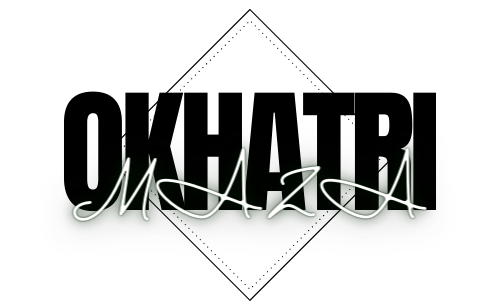In highly regulated industries, accuracy isn’t just important, it’s essential. From healthcare to finance and manufacturing, every document, software interface, and technical manual must follow strict guidelines. That’s where technical localization services come into play. This post explores how these services help regulated sectors stay compliant, communicate effectively, and expand globally.
What Are Technical Localization Services?
Technical localization services involve adapting complex, industry-specific content for a new language, culture, and market while preserving technical accuracy. It goes beyond just translating words. These services consider legal regulations, cultural nuances, measurement units, compliance terms, and even layout requirements.
This is especially vital in industries like:
- Healthcare & Life Sciences
- Finance & Legal
- Aerospace & Defense
- Energy & Manufacturing
- Software & IT Compliance
Picture translating a user guide for an MRI scanner or making the interface for tax preparation software for a foreign-language market. A minute mistake might result in compliance issues, functionality problems, or even lawsuits.
Why Regulated Sectors Need Localization Not Just Translation
Let’s break it down with a real-world example.
Case Study: Medical Device Manufacturer Expands to EU
A US-based medical device company needed to expand to Germany and France. They partnered with a technical localization agency to translate over 200 pages of user manuals, safety guidelines, and compliance documentation.
Why not just translate?
Because EU regulations demand specific terminology, units (metric system), CE labeling, and formatting that complies with the MDR (Medical Device Regulation). A direct translation would not have met these requirements.
Result:
Thanks to expert localization, the company passed audits on the first try, cut time-to-market by 3 months, and avoided potential penalties.
Key Challenges in Localizing for Regulated Sectors
1. Regulatory Compliance
Regulations differ by country. Whether it’s the FDA, EMA, GDPR, or ISO standards, technical documents must reflect regional laws.
2. Accuracy & Consistency
Regulated content often uses industry-specific jargon. A wrong term in a legal document or technical spec can create serious risks.
3. Version Control
Documents must be updated regularly to meet evolving standards. Managing multilingual versions can be complex without a structured localization process.
4. Confidentiality
Sensitive data in sectors like finance or defense needs secure handling. Only the best translation company in USA will provide NDAs, encrypted file transfers, and certified translators.
How Technical Localization Services Solve These Problems
Here’s what makes technical localization a must-have for regulated industries:
✔ Industry Expertise
Top localization providers have translators with backgrounds in law, engineering, medicine, and finance. They don’t just speak the language—they know the field.
✔ In-Country Review
Native experts review the content to ensure it complies with local laws and cultural expectations.
✔ Regulatory Alignment
Whether it’s HIPAA in the US or REACH in the EU, localization teams ensure your documents meet regional compliance standards.
✔ Quality Assurance (QA)
Multiple QA steps — including linguistic review, legal validation, and formatting checks — are applied before delivery.
How the Best Translation Company in USA Adds Value
Not all translation providers can handle complex regulatory content. The best translation company in USA offers:
- Certified translators with subject matter expertise
- ISO-certified processes to ensure quality and compliance
- Client portals for version control, team collaboration, and secure document exchange
- 24/7 support for global operations
Let’s look at another real example.
Case Study: Energy Company Meets International Standards
A Houston-based energy company needed to localize its safety and environmental manuals for operations in Brazil and the Middle East.
They worked with a U.S. localization provider known for its expertise in oil and gas. The project involved:
- Translating over 100,000 words
- Aligning content with local environmental regulations
- Adapting visuals, safety icons, and document formatting
Outcome:
The company passed regional safety audits with zero revisions. The localized materials helped onboard over 500 local employees with minimal training delays.
Which Sectors Can’t Afford Localization Mistakes?
🏥 Healthcare
From drug labels to patient-facing documents, precision is a legal requirement. Localization ensures these materials are safe and understandable.
💼 Finance & Legal
Investor disclosures, contracts, and compliance documents must follow national regulations and use legally accurate terminology.
🔧 Manufacturing & Engineering
User manuals, technical drawings, and process documentation often need to meet ISO or ANSI standards.
💻 Software-as-a-Service (SaaS)
Apps that deal with user data must follow global privacy laws like GDPR. Localization adapts content and compliance messaging to local norms.
Tips for Choosing the Right Localization Partner
- Check for Industry Experience
Look for agencies with experience in your sector — not just general translation. - Ask About QA Processes
Is there a structured review process? Are translations reviewed by native experts? - Verify Certifications
Top providers follow ISO 17100 (translation services) and ISO 9001 (quality management). - Test a Small Project First
Many companies offer pilot projects to demonstrate quality before you commit to larger assignments. - Secure Systems & NDAs
Make sure your localization partner can handle sensitive content securely.
Final Thoughts
In regulated industries, localization isn’t a nicety, it’s an operational and regulatory requirement. With technical localization services from the right provider, your business can move into new markets with confidence, remain compliant, and establish trust.
Looking for reliable help? Partner with the best translation company in USA — one that understands the stakes and speaks the language of your industry.




